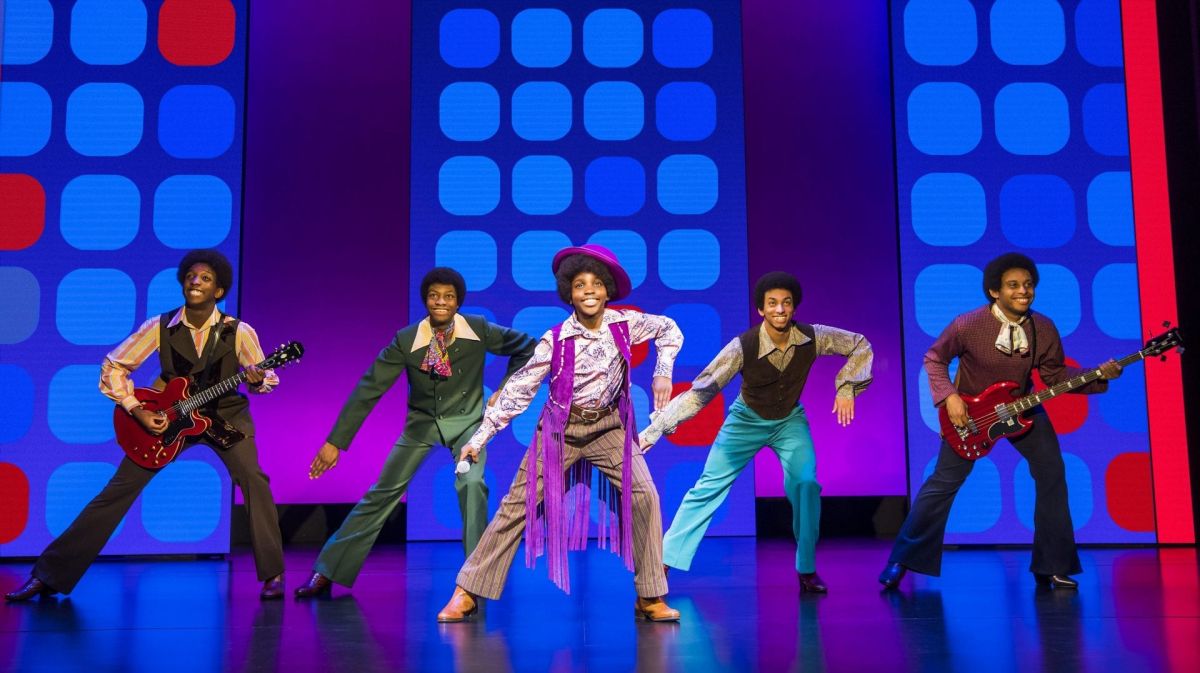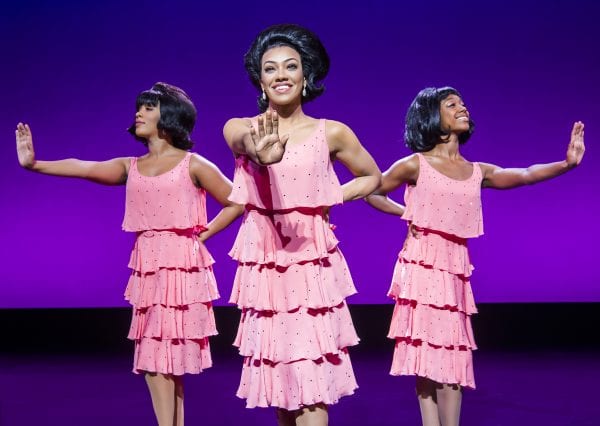
I’ve been listening to Motown for years, but this musical was not merely a flashback to my childhood. Rather, it made me feel nostalgic for a time I never knew. A time of horrors and hardships for people of colour, yes, but also of happiness and hope. Music was used to fight for a place in society, and it is through music all people find love and joy. The magic of Motown was how it appealed to mass audiences, and why decades later, it continues to be loved.
The show’s many set pieces were bright but never too grand. Instead, ‘Motown The Musical’ relied heavily on projections and animation; the plain set pieces allowed this to be achieved with ease. Simple things stood out, for instance, when a painter ‘spray painted’ a letter onto a sign, but the letter’s emergence was actually part of the animation. These small attentions to detail showed how much thought went into this production.
One of the greatest design elements was the costumes: so much glitz and glam! The replicas of iconic Motown outfits, such as Diana Ross’ puffy red gown and young Michael Jackson’s purple suit, were astounding and helped make the show feel like a trip down memory lane.
Standout performances included Stooshe’s Karis Anderson as Diana Ross, though her vocals were perhaps too good for Ross’ delicate voice, and Yami Mirazi, who played young Berry Gordy. The script, concerning Motown’s founding by Berry Gordy (played by the brilliant Edward Baruwa) and its stellar success, was good but not incredible; having to get through 26 years in two hours is difficult and felt rushed at times. However, I imagine few people went for the story anyway; they went to immerse themselves in Motown’s magic, for Smokey Robinson, Marvin Gaye, Stevie Wonder, and The Temptations (especially ‘My Girl’ and ‘Signed, Sealed, Delivered I’m Yours’).

Given the musical’s book is by Berry Gordy himself, it’s no surprise Motown’s dark-side is dismissed. For instance, Gordy’s second wife admitted to working as a prostitute when things got rough; she even alleged Gordy was a pimp and Motown was funded with prostitution money, not a loan from Gordy’s father.
Then there is the fall of Motown’s ‘First Lady’, Mary Wells at the height of her career. Following ‘My Guy’, Wells left Motown for a better deal; the musical portrays this as the ultimate betrayal, where Wells bites the hand that feeds her. Wells was actually having problems with Motown over the recording contract she signed as a minor, and, upon leaving, willingly lost all future royalties from her past work; it was about freedom, not fortune. There were also rumours that Gordy threatened to sue radio stations that played Wells’ new music. She unsurprisingly never found great success again.
Lastly, let’s not forget The Supremes, whose original lead, Florence Ballard, was pushed aside in favour of the more photogenic, likeable and light-skinned Diana Ross, Gordy’s lover. Whilst ‘Motown The Musical’ shows Gordy finding it difficult firing Ballard, it’s known Motown was training her replacement months before firing her, and the script does not even care to acknowledge Ballard’s post-Supremes hardships and premature death.
All-in-all, ‘Motown The Musical’ was a blast. With a political backdrop of the civil rights movement, even ending the first act with the assassination of Martin Luther King Jr., and a grand total of 66 Motown songs, this is a vibrant, touching and passionate musical that will make you wish you were born decades earlier.







